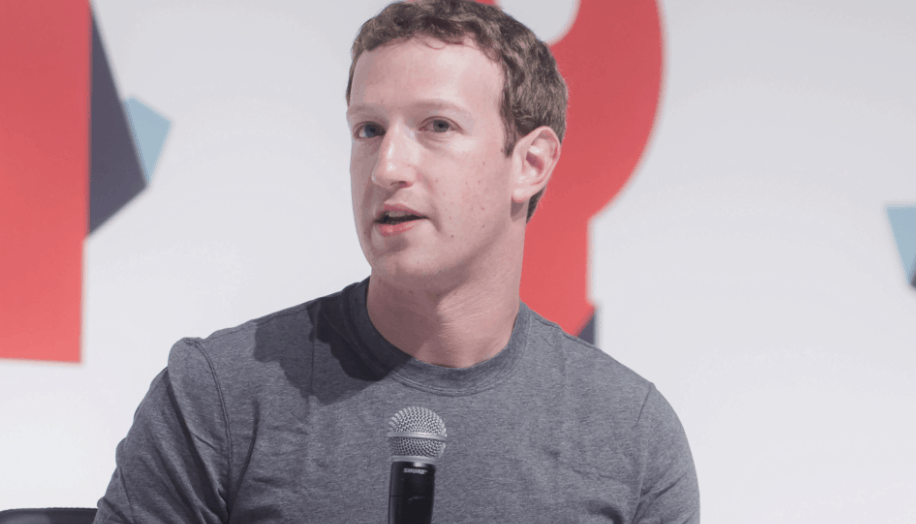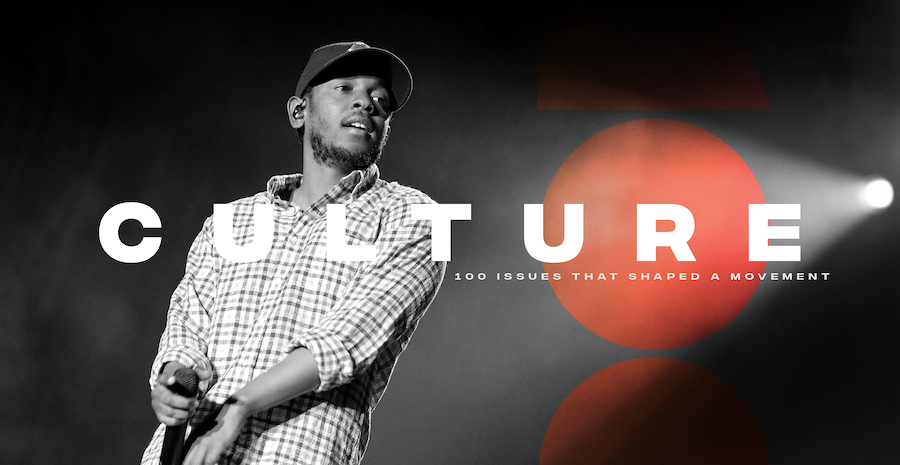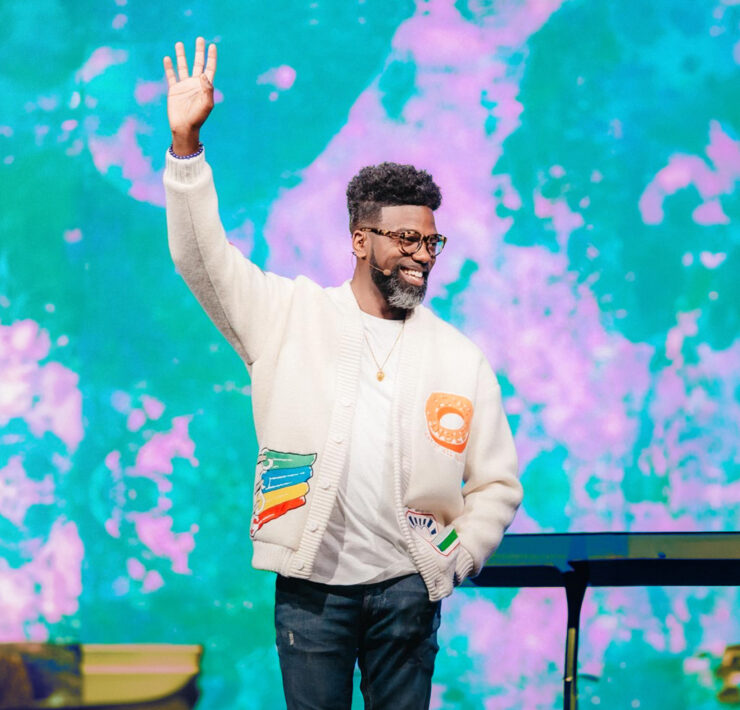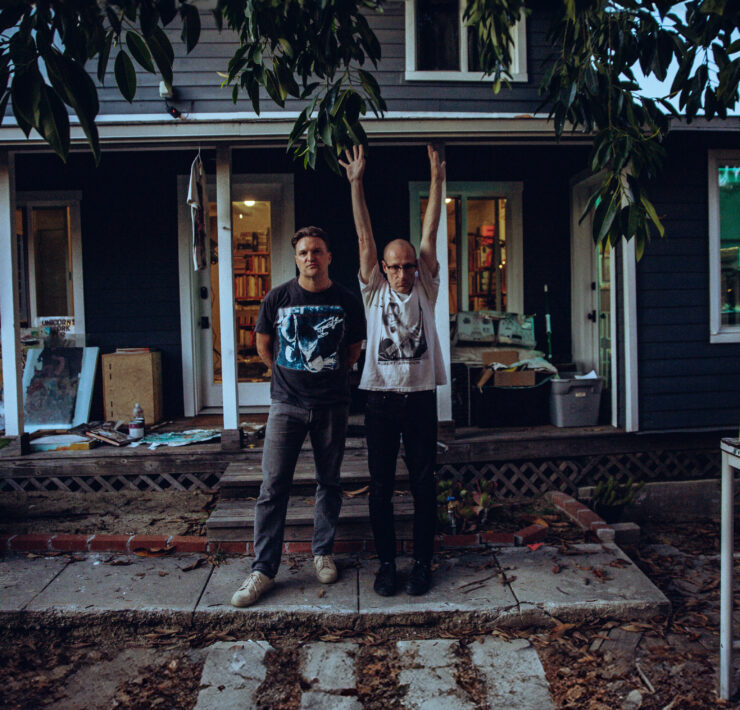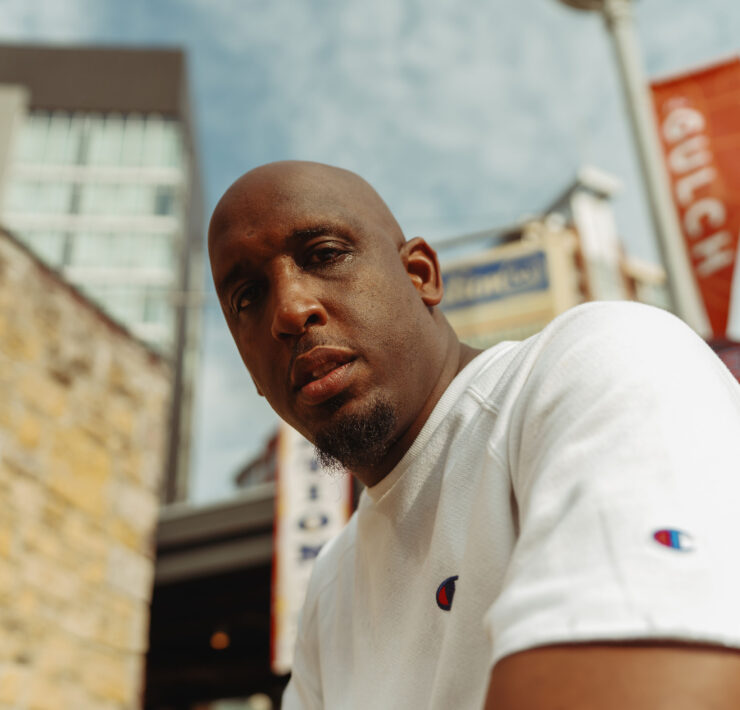
Every generation has struggled with what it means to live with intention. Timeless virtues like charity and self-control will always have to find new ways to operate within the context of new technological advancements and social developments. RELEVANT recruited a panel of experts in the areas of finance, relationships, tech and professional development to talk about how intentional living has changed and what the future holds.
What’s the biggest difference between how older generations think about work and how this one does?
Liz Bohannon: I think a point of differentiation is the desire for integration: I want to be able to integrate my beliefs, my unique story, my values and my community into the work I am doing on a daily basis. I want my life to be a narrative with consistent threads that weave throughout the story, not a series of silos that require me to turn off and on true, core parts of who I am and what I believe or tell myself a story to make it all work.
Nigel Cameron: The older generation wanted a steady job (and cared less about finding it satisfying) and lived at a time when that was easier to get and keep. Younger people tend to place a higher value on work they find fulfilling even if it is also riskier.
Sarah Bessey: The only thing I would add here is that I think one major shift between previous generations of believers and this one centers on what work is sacred and what work is secular. I came of age in an era when sacred work was understood as “The Most Important Calling”— meaning primarily full-time vocational ministry. The rest of us were there to support them as they did the “real work of the ministry.” My husband and I now jokingly call it our Evangelical Hero Complex. We thought that we had to do big things for a big God with a big vision—and so we missed the truth that God is just as present in every sort of work, that every work can be the real work of the ministry. There really is no division between secular work and sacred work for the Christian—and in fact, the “Most Important Calling” and heroic language isn’t super helpful when discerning one’s path in life. Disentangling myself from that false division has meant inviting God into every aspect of work, life, ministry from a place of wholeness rather than division or hierarchical rankings in the Kingdom of God. I see this generation embracing that right from the start, understanding that one can be a writer or a teacher or a business owner or a nurse or an activist or whatever—just as much as the traditional models of ministry—and all of it is for the glory of God.
How do you think we find a balance between practicality and passion when it comes to work?
Liz Bohannon: The Latin root of the word passion is “pati” which means, “to suffer.” I delivered that line in a talk once and the audience laughed. I frankly believe that especially over the past 10 years, the notion of “passion” has been distorted. Passion isn’t the same as enjoyment or pleasure. It’s about believing so deeply in something that you are willing to suffer to manifest that vision of the future. You’re willing to forgo momentary enjoyment for the fruit of commitment and sustained effort. This doesn’t at all mean that our vocations and callings should be devoid of joy, levity and pleasure, but if we chase those things as the ends themselves, “finding our passion” will become the new, albeit cleverly disguised idol that we believe will fix our problems. Our “passion” will not save us. We are called to create and solve problems because we were created in the image of the Divine to create, to co-labor to bring Heaven to Earth.

Jamie Tworkowski: A third “p” word comes to mind and that’s “privilege.” It is a privilege to be in a position to chase after our passions, to feel like we get to bring our heart to work. Because so many people don’t. So many people are struggling just to get by, doing whatever they can to pay the bills. I love to encourage people to pursue work that they are passionate about, but I think it’s also important to acknowledge that it’s not that simple for millions of folks.
Jo Saxton: Balance is such a hard word. And there is often a riddle to it. I often encourage young adults to consider that when we look at the Bible we are looking at people who are often looking back on their lives when it comes to calling, when it comes to their destiny and their purpose … When we look at Jeremiah 29:11, “I know the plans I have for you,” that was to a people not an individual. And we’ve internalized it and applied it on a personal level.
I’m not saying there isn’t a resonance there, but contextually it was to a people. I think it’s good to say “Well Daniel, you’ll have the calling to this thing.” Did he know at the time or was he just doing what had to be done at the time? That’s one thing I often get people to think through. How much did they really know was their calling and how much upon reflection do people then see the thread of God’s faithfulness building a way through.
I think we can get passionate about getting rid of our debt. I think we can get passionate about paying our bills. And it’s not sexy. And it’s not exciting. But it is liberating. It is freeing to put yourself in a healthy place.
It may mean that not all of your passions are realized all at once, but I think again when we look at the arc of Scripture … Jesus was in His 30s when He started. We can see plenty of little examples of people doing things for a while, for a chapter of their lives. There’s not many characters where we get to see the whole of their lives.
Bianca Olthoff: The greatest tension I see with people on my team who are younger than me is a belief that their passion should pay for practical things. As in, let me find a job that encompasses my “calling,” my passions, allows me to have a flexible work schedule, paid time off, and pays me enough to cover all my expenses and have spontaneous vacations and a membership to a boutique workout facility. More often than not, we will have a job that will be practical and requires we live practically. Our job wasn’t created so we can live out our passion, so why put pressure on ourselves or our employers to ensure we are fulfilling our passion?
“Passion isn’t the same as enjoyment or pleasure.” –Liz Bohannon
Blake Mycoskie: As an entrepreneur, I am driven by passion. My advice to other aspiring entrepreneurs is to focus on your passion; nothing else matters. If you’re passionate about your business, you’re doing it because you love it and you want to make a difference.
What are some ways Christians should be prepared to think about the future of work?
Nigel Cameron: There may be a crisis ahead. In my book on robots and jobs I argued that we don’t know—we should seek consensus on a risk-based approach to policy and workforce preparation. Because there’s a non-trivial chance that the “full employment” that has been the bedrock of modern economies (and democracies) could be over. Whether this will mean heaven on Earth or hell on Earth depends on our preparation—in policy and personal terms. There’s no question that labor markets will go through a series of shocks in the next 15 to 30 years, whether or not we emerge with enough jobs to go around. The survivors will need to be entrepreneurs, and creatives, and have interpersonal skills—the kind of things machines will find hard to replicate and/ or people would rather pay people to do. Sadly, the idea that everyone needs more STEM education is baloney. Lower-end STEM jobs will be the first to go. Can the Church, the world’s greatest volunteer organization, set the pace in shaping non-paid-work roles that have meaning?
Joshua Harris: I was a pastor for 17 years and then I went to seminary at Regent College (yeah, I know that was backwards). At seminary I decided I didn’t want to be a pastor. Being at Regent helped me see that I had a wrong view of “calling.” Jeff Greenman lectured on Luther’s vision of vocation and he asked the question, “Do you believe there is a spiritual hierarchy and that ministry is a higher calling than other work?” That convicted me. I realized that I thought of pastoring as really serving God and other work as less spiritually significant. I equated being a pastor with being faithful to God. I think more Christians need to understand that all work is spiritual and part of faithful service to God. This truth allows them to integrate their faith into all of life.
Dating has changed a lot over the last 10 years. Do you think it’s been for better or for worse?
Joshua Harris: Short answer: I think my book [I Kissed Dating Goodbye] contributed to making things worse. I think that imbalance is being corrected by new voices and by pushback against a shame-based view of sexuality and inequities between men and women. But relationships and dating will always be complicated, and a place where we need a lot of grace—for ourselves and for others. If anyone tells you they have simple relationship solutions, they are selling you something. Wherever we can embrace the messiness of relationships and avoid easy answers, we’ll be better positioned to grow.
Bianca Olthoff: Modern dating is the blessed curse. The benefit is that with a swipe, a tap or a click we can connect with compatible matches in our area we otherwise would’ve never known existed. That being said, so many of my single friends are dealing with Analysis Paralysis and can’t make a decision on who to date in fear of missing out on the bigger, better, brighter option on another app, page or dating site. FOMO is real! Too many options are complicating scenarios and allowing people to casually test the waters rather than jumping into the dating ocean and committing to get to know someone intimately.
There’s been pushback to the “purity culture” many of us were raised in. What needs to change about how the church talks about sex?
Sarah Bessey: The Church’s conversations around sex have been dominated by fear, power and control, which has led to destruction, wounding and even death. Instead, I think that making a shift toward a theology of care, of health and joy, of shamelessness, of inclusion, and of love, while also actively working to dismantle patriarchy from our understandings of those things, will be active, necessary work for us all. There will be over-corrections and missteps as we do that work, but even that is necessary as we carve out a path of wholeness.
“Can the Church … set the pace in shaping non-paid work roles that have meaning?”
–Nigel Cameron
Bianca Olthoff: The pendulum has swung to the other side of the purity culture, and it almost feels like the Church has gone silent on topics like sex, romance, attraction and the dangers of our popular hookup culture. Instead of allowing magazines, movies, and media to define what awesome sex and relationships should look like, I would love for the Church to redeem some awesome (and even provocative) narratives we see in Scripture.
What do you feel is causing delayed marriage in this generation?
Nigel Cameron: Not a simple question, since it’s the result of various trends; aside from the opening of many more professional opportunities to women, we also have a culture in which we get more and more education before we start a first job. And of course we are mostly living a lot longer, so the trajectory of human experience has shifted. Yet women’s reproductive biology has not shifted along with everything else, and one result has been increased dependence on assisted reproductive technology, with all of its practical and in many cases ethical challenges. The issue of course is not simply marriage (in the U.S., age of first marriage for women has risen from 20 to 27 since 1970; age of first child from 24 to 28), but the overlap with career development, especially in a society where there is little social support (childcare, tax credits) for women with small children. Perhaps there are good models in some churches for how volunteer efforts could make a big difference?

Jamie Tworkowski: “Delayed marriage” implies that marriage is coming. For many, it doesn’t feel that way. So many folks feel alone. So many feel invisible. I hope that Christians will do a better job at caring for singles of all ages, acknowledging the longing and loneliness that so many people live with. And I hope Christians will help remind singles that they deserve connection as well, that they deserve love whether they’re in a romantic relationship or not.
How have the recession and student debt crisis changed the way this generation is thinking about money?
Liz Bohannon: I think it’s the single biggest impediment to social innovation and entrepreneurship. The “capital” I used to launch my company was my savings from nannying in high school and college. And the reason I had savings in the first place is—well, frankly, the first reason is privilege; I came from a financially stable family—but secondarily because I chose to attend a state school with an undergraduate tuition of $8,000 a year, rather than go into massive debt to go to one of the private liberal arts schools that I would have loved to attend. I went on to get a Master’s degree in journalism, but frankly, the deciding factor was that I was able to pay for it through a graduate research assistantship. Graduating in four years with two degrees and zero debt meant that when I entered into “the real world,” I had the freedom to take the enormous risk of quitting a “safe” full-time job with steady and upward earning potential and buy a one-way plane ticket to Uganda, knowing that, without the burden of student loans, I could live simply enough to survive while I was able to dedicate myself to learning, listening and eventually launching a social enterprise.
Jon Acuff: I think it’s taught us all to be more cautious and to be more creative when it comes to how we approach what it means to get an education.
Rachel Cruze: Honestly, I would have thought it would have made a bigger impact on people’s outlook for our generation, but it really hasn’t because we’ve seen the debt levels continue to grow. Student loan debt has continued to rise, credit card debt has continued to rise. My hope was, when it all went down, our generation would look at our parents and have a little bit of a hesitation thinking, “Oh, OK. Something bad could happen.” Factually, we’re just not seeing that.
We’re getting married later. We’re buying homes later. We’re putting off a lot of life milestones because of our financial situation. That is immediately tied to debt—especially student loan debt.
Sarah Bessey: The recession and the student debt crisis are not individual liberty issues—these are systemic ways that our society treats money and particularly treats the most vulnerable in our society. They happened on purpose. It’s damaging, predatory and unequal. The survival of the fittest model is only drowning more people, especially vulnerable people, deepening divides not only of money but of opportunities. Of course the recession and the debt crisis may (and probably should) change our individual habits and choices but my hope is that we’ll lift up our eyes to these larger economic systems that make inequality purposeful.
How can Christians navigate the ethical consumption question when it seems like just about everything we buy has a dark side?
Blake Mycoskie: It’s not bad to want to be successful. The more you’re blessed with commercial success, that gives you a bigger platform to change the world and do bigger things and inspire others. For TOMS, our impact isn’t just the 93 million people who we’ve helped with our One for One giving, but the hundreds of other businesses that have changed their business model and committed to giving back.
Rachel Cruze: I always say it’s OK to have nice stuff, just don’t let your nice stuff have you. Your stuff can have you if you go into debt over it. It can have you if your identity, your happiness, your joy, your contentment—who you think you are—is wrapped up in that thing. There is a place as you save up to pay for something and you buy it with the motivation knowing, This isn’t going to bring me eternal joy and happiness. It’s just a fun thing to get and I can do it because I’ve saved up the money. My heart is in the right place. There’s definitely times where you can buy some fun things.
Nigel Cameron: I had a favorite schoolteacher who always encouraged us to remember what he called “the law of the limited objective.” We have to focus, choose our targets and work at not feeling frustrated/guilty we aren’t doing everything about everything—because of course such frustration/guilt simply paralyzes. I think we need to teach Christians to think like this, quite consciously; to be prudent; to pick a target or two or three. And to remember that it’s a fallen world. We shouldn’t be surprised that everything is disordered, we should expect it. And we should expect to be tempted to feel it’s all hopeless! Yet it’s not.
How can churches better address excess, consumerism and consumption in the future?
Joshua Harris: All I can think of when I hear this question is that Instagram account @preachersnsneakers where they post the prices of the shoes celebrity pastors are wearing. Whenever I look at that page, I feel both judgmental toward their conspicuous consumption and jealous because I want those shoes! That’s a long way of saying I think we need more grace toward others and to focus on our own hearts and wallets.
Liz Bohannon: There is a land somewhere between prosperity gospel preachers in sneakers and the “thrifty Christian” who thinks it’s a holy act to score 17 shirts on clearance at Kohl’s for $13. If Jesus followers got serious about leading the conversation and living out principles of conscious consumerism and generosity, it would be an incredibly powerful testament.
Bianca Olthoff: I feel like we can integrate these questions and conversations on a more regular basis rather than relegating them to a missions weekend, social justice initiative or hot topic. The more we speak about it, the more we will be able to dialogue about ways to engage and address it.
Jon Acuff: I think by moving beyond our “pet causes.” There are a handful of topics we love to talk about and then a handful of topics we never address. We have to expand the circle of things we’re willing to discuss.
What do you think the future of social entrepreneurism looks like?
Jo Saxton: My hope is that it’s a way of us reclaiming— because we’ve seen these things in different periods of history where we see the Church engage with the world in a more tangible way. If this can be a chance for us to be the hands and feet of Jesus, if this can be a chance for us to not just say, ‘You come to us,’ but we come to you, and we do it in a way which is not colonization, we do it in a way that is not about our privilege and power but is actually about humans flourishing and demonstrating good news– being good news–I think there’s massive potential to go to people and places that the Church never gets to. But also to do so in a way that is holistic and healthy and empowering. I think it could be a wonderful opportunity for us, but I think it will require resilience on our part.
I love seeing that creativity because we need these ideas. We need to think not just how do we fix the world, but how do we empower people and how do we make all things new? How do we be part of what God is doing in the world and how do we serve Him and serve others?
Liz Bohannon: I think what once made social enterprises special is going to become the norm and expectation. The great part is, it’s going to push us toward higher standards and better practices across the board. This is amazing! The downside is, inevitably, there will be companies who are merely selling a story of social change and it will fall on the consumer to try and decipher what is authentic and what’s really good marketing.
Rachel Cruze: As technology progresses, there’s going to be more opportunities for people to do their own thing. I think we can have rose-colored glasses where things sound really great, and then we get two years down the road and it’s not working. You realize that running a business is a lot harder than it sounds. Those are the two sides of the coin. I think there’s incredible opportunity. That’s one thing I appreciate about our generation. It’s “What’s your why?” behind why you work. Are you in a job that you love? We hold value to that.
The extreme side of this is not good, with millennials walking around without jobs because they haven’t found their “dream job.” But I think we value our passions more than past generations.
Blake Mycoskie: What excites me about the future of social entrepreneurship is not some huge new idea but how we can take something that already exists and just make it better to work more efficiently, thoughtfully and be more consumer-oriented. Trying as hard as you can to build something that’s not new but building it as if it’s never been done before.
When I started TOMS 13 years ago, I had a revelation that I could build a business and help people at the same time. For me, this is a huge blessing and a way to honor God. Business has a different possibility.
I am so proud that One for One has grown far beyond TOMS as other companies have built giving back into their business models. A rising tide lifts all ships. But it’s also brought about business that uses giving as a marketing gimmick instead of authentic and core to their company. Giving has to be integrated into every piece of your business, it can’t just be a marketing tactic. Customers know the difference and can sniff out a company that is inauthentically giving back.
How will social media affect the way churches will reach people in the future?

Bianca Olthoff: As a new church-planter, we are shocked at how many people online are engaging and even flying to come visit us. Our online views are quadruple the size of our church, and we have even had stories of people finding our messages online and dedicating their life to Christ. However, digital access is a poor substitute for community and spiritual growth. We fear so many of our congregants are losing the value of the local church.
Sarah Bessey:I’m actually a huge proponent for the opportunities here because it can make us more inclusive, and social media can expand the family of the church—but it’s easier to use it to create more celebrities and divisions instead.
Jamie Tworkowski: I would also add that I hope churches will move beyond using social media as highlight reels for their influential pastors. Show me other people. Tell me stories that aren’t about the guy on stage. I’m sick of the marketing machines. I’m sick of the self-promotion.
What tech innovations excite you the most?
Jon Acuff: The ability to organize a movement. My readers raised $30,000 in 18 hours to build a kindergarten in Vietnam. There’s a zero percent chance we could have done that without the power of social media.
Blake Mycoskie: I am currently focused on consciousness and how we scale the principles of modern neuroscience, psychology and physiology to make our brains and bodies work better.
Do you feel like churches are prepared to answer some of the spiritual and ethical questions that the coming A.I. revolution poses?
Nigel Cameron: There have been a slew of reports and statements over the past year or so. Elon Musk, who is hardly a Luddite, declared that we might be “summoning the demon.” There’s widespread anxiety about “rogue A.I.,” which led Bill Gates and Stephen Hawking and a lot of not-normally-panicky people to sign on to an open letter of concern.
And what does it mean for human freedom and dignity and accountability for corporations and governments—and any hacker who can crack his or her way in—to know so much about us, and be able to exploit that knowledge to influence how we think—and vote and buy? Should Christians be using these highly sophisticated and subtle tools already available to persuade social media users to believe?
What effects do you think growing up with social media will have on future generations?
Sarah Bessey: I’m pretty invested in this question right now because I have four kids, and the difference between my childhood and theirs in terms of technology is, well, immense.
I think in many ways we’re raising the beta generation for this question. And so this will be the baseline generation—we’ll figure out the ways we did it wrong and the ways we did it well from this experience. I think being aware, honest and keeping a firm grasp on the things that make us truly human will be helpful.
My hope is that we’ll see these tools of connection as opportunities and not as overlords.
Nigel Cameron: The social media-smartphone combo is extraordinarily recent—so projecting ahead is a challenge.
We have to assume we’ll devise practices that avoid the attention-deficit habits we’re all fighting today (I love Tiffany Shlain’s simple notion of a weekly Tech Shabbat, for example) to ensure that our devices and apps are made for our benefit, and not, despite the techniques deployed by Facebook and the rest, that we exist for theirs!








